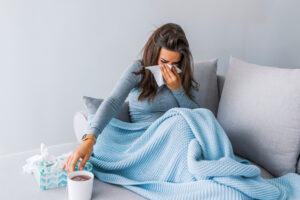 Diabetes is one of the leading causes of disability and death in the United States. It can cause blindness, nerve damage, kidney disease, and other health problems.
Diabetes is one of the leading causes of disability and death in the United States. It can cause blindness, nerve damage, kidney disease, and other health problems.
Get the Facts.
- One in 10 Americans – more than 30 million people have diabetes. Another 84 million adults in the United States are at high risk of developing type 2 diabetes.
- Type 1 diabetes occurs at every age, in people of every race, and in every shape and size.
- In type 1 diabetes, the body’s immune system destroys the cells that release insulin so that over time the body can’t produce insulin at all.
- The most common form of diabetes – type 2 – happens when your body can’t use insulin the right way. Over time, the pancreas can’t make enough.
- High blood sugar can harm many parts of the body, such as the eyes, heart, blood vessels, nerves, and kidneys.
Take Action.
- Learn as much as you can about diabetes, working closely with your provider.
- With the help of insulin therapy and other treatments, anyone can learn to manage diabetes and live healthy lives.
- Stay Fit and Eat Healthily! Having excess body fat and a poor diet contributes to risk factors.
- Quit Smoking! This can help you reduce your risk of heart disease and stroke.
- See Your Medical Provider! Regular checkups are important to monitor your health.
Additional Information
Visit Community Health Net’s free Patient Education Center for more information on Diabetes.
Start here:
Diabetes
Education on type 1 diabetes, type 2 diabetes, and gestational diabetes. Includes info on juvenile diabetes and prediabetes. Discusses symptoms and treatment. Also looks at how to manage blood sugar levels, diet, and medicines, including insulin.
Diabetes and Exercise
Find out how exercise helps you control your blood sugar and feel better in other ways too.
Diabetes and Infections
High blood sugar from diabetes can affect the body’s immune system, impairing the ability of white blood cells to come to the site of infection, stay in the infected area, and kill microorganisms. Because of the buildup of plaque in blood vessels associated with diabetes, areas of infection may receive poor blood…
Find a Doctor
Call Community Health Net to schedule an appointment with a provider today: (814) 455-7222. Or visit www.communityhealthnet.org for more information.
Our health information does not replace the advice of a doctor. Please be advised that this information is made available to assist the public to learn more about their health. Community Health Net providers may not see and/or treat all topics found herein.
Health Facts is a public service partnership of Community Health Net and CF Cares of Country Fair Stores, Inc.


 Diabetes is one of the leading causes of disability and death in the United States. It can cause blindness, nerve damage, kidney disease, and other health problems.
Diabetes is one of the leading causes of disability and death in the United States. It can cause blindness, nerve damage, kidney disease, and other health problems.


 The flu is caused by several influenza viruses (which are not the same as the virus that causes COVID-19). Most flu outbreaks happen in late fall and winter. Getting a flu shot in the autumn can help prevent the virus for the entire flu season. Most people with the flu get better after a few weeks, but they can pass it to other people who are at higher risk of health problems, such as babies, pregnant women, older adults, and people with other serious illnesses. Find out the
The flu is caused by several influenza viruses (which are not the same as the virus that causes COVID-19). Most flu outbreaks happen in late fall and winter. Getting a flu shot in the autumn can help prevent the virus for the entire flu season. Most people with the flu get better after a few weeks, but they can pass it to other people who are at higher risk of health problems, such as babies, pregnant women, older adults, and people with other serious illnesses. Find out the  Most breast cancers are found in women who are 50 years old or older. About 10% of all new cases in the United States are found in women younger than 45.
Most breast cancers are found in women who are 50 years old or older. About 10% of all new cases in the United States are found in women younger than 45.